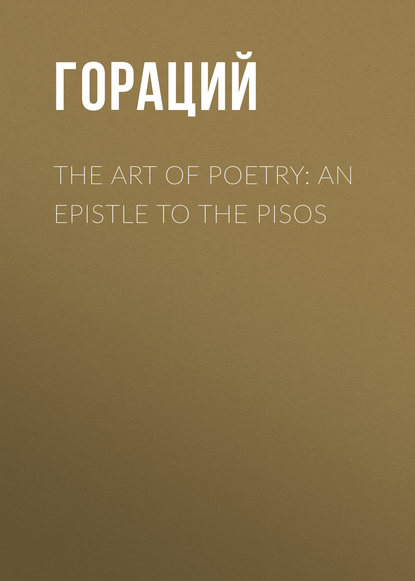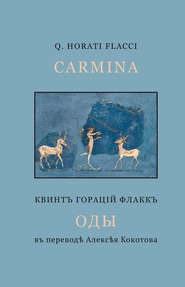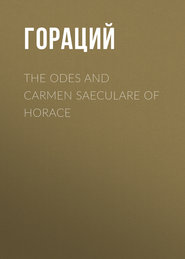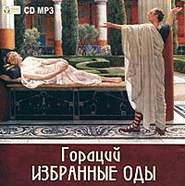По всем вопросам обращайтесь на: info@litportal.ru
(©) 2003-2024.
✖
The Art of Poetry: an Epistle to the Pisos
Настройки чтения
Размер шрифта
Высота строк
Поля
568.—Metius.] A great Critick; and said to be appointed by Augustus as a Judge, to appreciate the merit of literary performances. His name and office are, on other occasions, mentioned and recognized by Horace.
570.—Weigh the work well, AND KEEP IT BACK NINE YEARS! nonumque prematur in annum!]
This precept, which, like many others in the Epistle, is rather retailed, than invented, by Horace, has been thought by some Criticks rather extravagant; but it acquires in this place, as addressed to the elder Piso, a concealed archness, very agreeable to the Poet's stile and manner. Pope has applied the precept with much humour, but with more open raillery than need the writer's purpose in this Epistle.
I drop at last, but in unwilling ears,
This wholesome counsel–KEEP YOUR PIECE NINE YEARS!
Vida, in his Poeticks, after the strongest censure of carelessness and precipitation, concludes with a caution against too excessive an attention to correctness, too frequent revisals, and too long delay of publication. The passage is as elegant as judicious.
Verùm esto hic etiam modus: huic imponere curae
Nescivere aliqui finem, medicasque secandis
Morbis abstinulsse manus, & parcere tandem
Immites, donec macie confectus et aeger
Aruit exhausto velut omni sanguine foetus,
Nativumque decus posuit, dum plurima ubique
Deformat sectos artus inhonesta cicatrix.
Tuque ideo vitae usque memor brevioris, ubi annos
Post aliquot (neque enim numerum, neque temporar pono
certa tibi) addideris decoris satis, atque nitoris,
Rumpe moras, opus ingentem dimitte per orbem,
Perque manus, perque ora virûm permitte vagari.
POETIC. lib 3.
592.—AND ON THE SACRED TABLET GRAVE THE LAW. LEGES INCIDERE LIGNO.]
Laws were originally written in verse, and graved on wood. The Roman laws were engraved on copper. DACIER.
595.—TYRTAEUS.] An ancient Poet, who is said to have been given to the Spartans as a General by the Oracle, and to have animated the Troops by his Verses to such a degree, as to be the means of their triumph over the Messenians, after two defeats: to which Roscommon alludes in his Essay on translated Verse.
When by impulse from Heav'n, Tyrtaeus sung,
In drooping soldiers a new courage sprung;
Reviving Sparta now the fight maintain'd,
And what two Gen'rals lost, a Poet gain'd.
Some fragments of his works are still extant. They are written in the Elegiac measure; yet the sense is not, as in other Poets, always bound in by the Couplet; but often breaks out into the succeeding verse: a practice, that certainly gives variety and animation to the measure; and which has been successfully imitated in the rhime of our own language by Dryden, and other good writers.
604.—_Deem then with rev'rence, &c]
Ne forte pudori Sit tibi MUSA, Lyrae solers, & Cantor Apollo.
The author of the English Commentary agrees, that this noble encomium on Poetry is addressed to the Pisos. All other Commentators apply it, as surely the text warrants, to the ELDER PISO. In a long controversial note on this passage, the learned Critick abovementioned also explains the text thus. "In fact, this whole passage [from et vitae, &c. to cantor Apollo] obliquely glances at the two sorts of poetry, peculiarly cultivated by himself, and is an indirect apology for his own choice of them. For 1. vitae monstrata via est, is the character of his Sermones. And 2. all the rest of his Odes"—"I must add, the very terms of the Apology so expressly define and characterize Lyrick Poetry, that it is something strange, it should have escaped vulgar notice." There is much ingenuity in this interpretation, and it is supported, with much learning and ability; yet I cannot think that Horace meant to conclude this fine encomium, on the dignity and excellence of the Art or Poetry, by a partial reference to the two particular species of it, that had been the objects of his own attention. The Muse, and Apollo, were the avowed patrons and inspirers of Poetry in general, whether Epick, Dramatick, Civil, Moral, or Religious; all of which are enumerated by Horace in the course of his panegyrick, and referred to in the conclusion of it, that Piso might not for a moment think himself degraded by his attention to Poetry.
In hoc epilago reddit breviter rationem, quare utilitates à poetis mortalium vitae allatas resenfuerit: ne scilicet Pisones, ex nobilissimd Calpurniorum familiâ ortos, Musarum & Artis Poeticae quam profitebantur, aliquando paniteret.
DE NORES.
Haec, inquit, eo recensui, ut quam olim res arduas poetica tractaverit, cognoscas, & ne Musas coutemnas, atque in Poetarum referri numerum, erubescas.
NANNIUS.
Ne forte, pudori. Haec dixi, O Piso, ne te pudeat Poetam esse.
SCHREVELIUS.
608.–WHETHER GOOD VERSE or NATURE is THE FRUIT,
OR RAIS'D BY ART, HAS LONG BEEN IN DISPUTE.]
In writing precepts for poetry to young persons, this question could not be forgotten. Horace therefore, to prevent the Pisos from falling into a fatal error, by too much confidence in their Genius, asserts most decidedly, that Nature and Art must both conspire to form a Poet. DACIER.
The Duke of Buckingham has taken up this subject very happily.
Number and Rhyme, and that harmonious found,
Which never does the ear with harshness wound,
Are necessary, yet but vulgar arts;
For all in vain these superficial parts
Contribute to the structure of the whole,
Without a GENIUS too; for that's the Soul!
A spirit, which inspires the work throughout,
As that of Nature moves the world about.
As all is dullness, where the Fancy's bad,
So without Judgement, Fancy is but mad:
And Judgement has a boundless influence,
Not only in the choice of words, or sense,
But on the world, on manners, and on men;
Fancy is but the feather of the pen:
Reason is that substantial useful part,
Which gains the head, while t'other wins the heart.
Essay on Poetry.
626.–As the fly hawker, &t. Various Commentator concur in marking the personal application of this passage.
Faithful friends are necessary, to apprise a Poet of his errors: but such friends are rare, and difficult to be distinguished by rich and powerful Poets, like the Pisos. DACIER.
Pisonem admonet, ut minime hoc genus divitum poetarum imitetur, neminemque vel jam pranfum, aut donatum, ad fuorum carminum emendationem admittat neque enim poterit ille non vehementer laudare, etiamsi vituperanda videantur. DE NORES.
In what sense Roscommon, the Translator of this Epistle, understood this passage, the following lines from another of his works will testify.
I pity from my foul unhappy men,
Compell'd by want to prostitute their pen:
Who must, like lawyers, either starve or plead,
And follow, right or wrong, where guineas lead:
But you, POMPILIAN, wealthy, pamper'd Heirs,
Who to your country owe your swords and cares,
Let no vain hope your easy mind seduce!
Другие электронные книги автора Квинт Гораций Флакк
Другие аудиокниги автора Квинт Гораций Флакк
Избранные оды




 4.67
4.67












